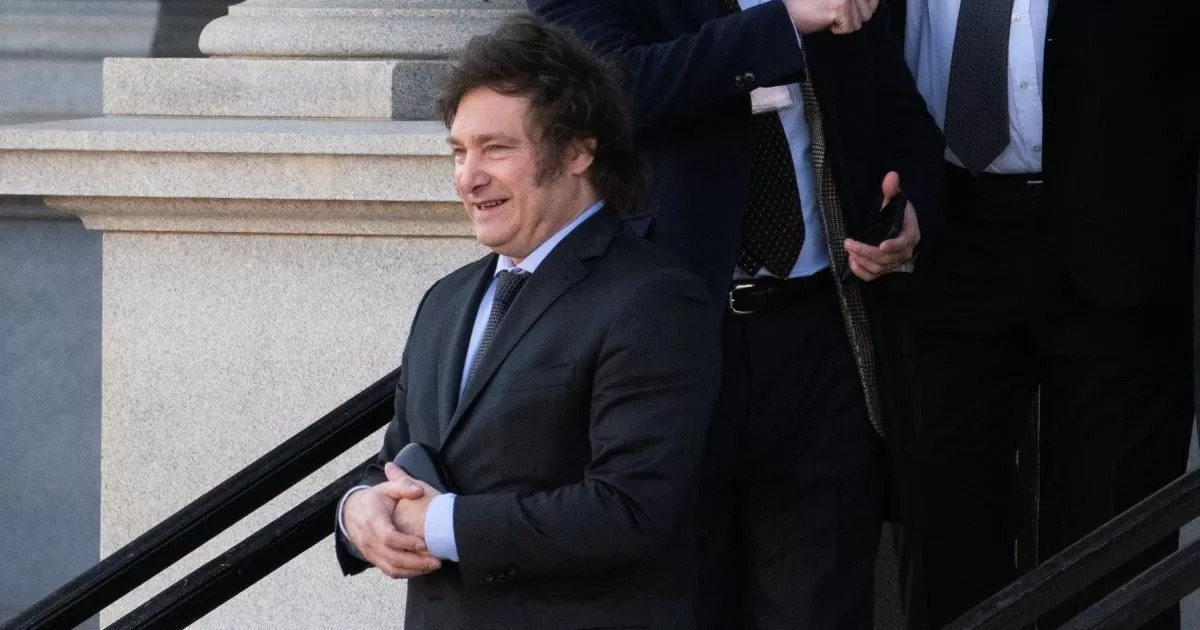The Executive Branch established these measures in order to achieve “better functioning of the public administration,” stated the decree published in the Official Gazette.
The government had announced its decision to cut the number of public personnel shortly after the president’s inauguration. Javier Miley on December 10 within the framework of the plan to reduce the large fiscal deficit to straighten the economy and tackle inflation that is expected to climb to 200% by the end of the year.
Regarding the non-renewal of contracts, the decree establishes that exceptions are those “derived from quotas regulated by law or other types of special protections”, those of personnel who have been providing tasks prior to January and have changed their type of employment. contracting and that “that the head of each jurisdiction evaluates to be essential for its operation.”
For hiring prior to January 1, the authorities of each area must carry out an exhaustive survey and, if they decide to renew them, “they must justify the decision by demonstrating the need to continue with the hiring.”
When mentioning the measure that covers the national administration and decentralized organizations, presidential spokesperson Manuel Adorni pointed out that “there are just over 5,000 contracts that are signed in 2023 that will not be renewed and the rest of the contracts enter a process review”.
Political consensus
Milei must overcome the obstacles that her future will foreseeably have. reform package in it Congresswhere its political structure has limitations and lacks interlocutors to establish the necessary consensus to carry out the structural transformations that it seeks to implement during its mandate.
Last week, Milei announced a new package of measures that seeks to deregulate the economy, promote exports and investment, and open the door to the privatization of public companies with the aim of straightening out the crisis in South America’s second largest economy.
The president ordered by decree the elimination of hundreds of regulations and announced a set of legislative reforms, including labor reforms, which represent a complete turnaround in the economic policy of the last governments led by Peronism.
The government will send the Decree of Necessity and Urgency (DNU) to Congress in the coming days to be processed by a bicameral commission, which must issue a ruling that would be subsequently debated in both chambers.
The DNU can be endorsed with the support of a single legislative chamber, and would also remain in force in the event that Congress fails to speak. The decree will remain in force as long as both chambers of Congress do not reject it with an absolute majority.
These days, Milei is trying to build bridges with the heads of the opposition in Congress. It is expected that it will be in March 2024 when the Chamber will begin the discussion of the DNU, which contains the drastic reforms of laws and regulations with which the president intends to achieve a change in the economic regime. From now until that moment, the government will have a period of time to negotiate and prevent the most intransigent sectors of the opposition from gathering enough votes to declare the decree null and void.
In advance, it is known that the measure will be rejected by the Justicialista Party, a sector of the Radical Civic Union and the unions that make up the CGT, the main group of workers in Argentina, as well as the Kirchnerism. However, the Pro party, of the former president Mauricio Macriand another wing of the UCR are not so reluctant to endorse Milei’s decree, reported La Nación.
The sector of governors is also key for Milei, which will try to ensure their support, especially from those who know that they have to have fluid communication with the Pink House to guarantee the funds that will help them maintain governability in the territories they govern. The Minister of the Interior, Guillermo Francos, is the one in charge of starting the negotiations.
Defense of the decree
Milei’s government defends the reform decree by claiming that the Argentine economic situation is “terminal” and that they must act efficiently before “the patient dies.” They also argue that if the reform package had been brought to Congress, the delay would have been great, which would hinder the implementation of the changes. Likewise, they maintain that they will give priority to the discourse towards Argentine society instead of focusing on political discussion.
“It seems that some out of sadism, and others out of corruption, want to keep Argentines who want to get out of misery in chains,” Milei said on his X account, formerly Twitter, in the middle of Christmas Day.
Milei has indicated that this and other reform packages that he plans to promote will slow inflation and improve the economy. The rise in prices is almost 161% annually and poverty affects more than 40% of the population.
Historic moment
The Minister of Security, Patricia Bullrich, assured that the country is going through “a moment of very important changes” that “will reconfigure the nation” so that the country is one “that advances permanently.”
“We are in a moment of very important changes for the country, changes that are going to reconfigure our nation, our jobs, our families, for a different future, for a future where we achieve that Argentina is not a country that goes backwards, but is a country that advances permanently,” he said last Sunday in a message to the nation on the occasion of Christmas published through his account on the social network X.
“For many years we have lived in decadence. For many years we have lived with particular interests that cover up the interests of the population as a whole,” he said.
He stressed that “work has begun to reverse this, so that the power belongs to the people and not to minorities who what they do is keep everything for themselves and little for society.” “We are starring in a new historical moment for Argentina,” she remarked.
The DNU has the support of the Argentine Business Association – which brings together the main businessmen – which described it as “a historic opportunity” because it aims to combat “the excessive size of the State” and the “very negative consequences” that have had deficits in public accounts for decades.
The businessmen questioned that the private sector has been subjected “to undue state interference, to price controls, to a very high tax pressure, to arbitrary restrictions on foreign trade.”
Areas such as work, health, consumption, housing rentals, tourism, communications and even football will be impacted by the decree.
Source: EDITORIAL / With information from La Nación / Europa Press



